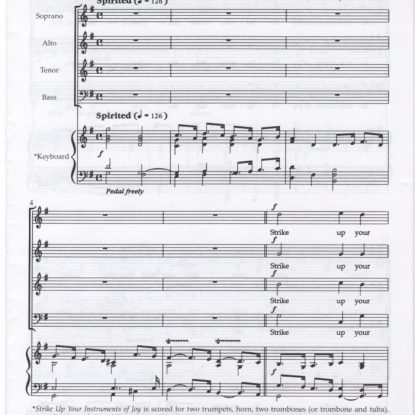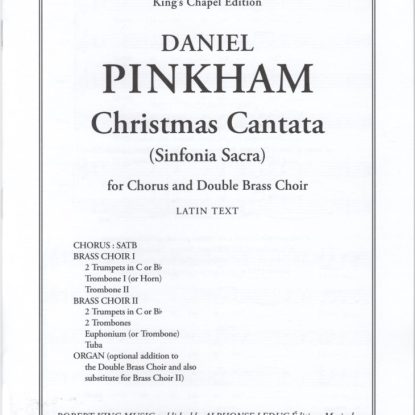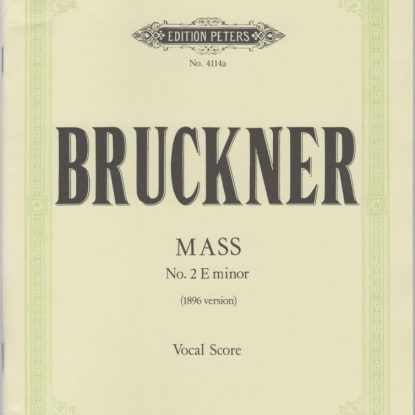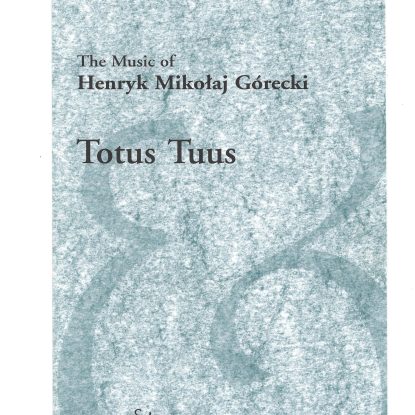Description
Reviews of the score
David Chase, La Jolla Symphony and Chorus
Adrian Horn’s new edition of the Berlioz Requiem was one of the most fortunate discoveries of my 40 years in choral music. A wizened colleague had already sent me a sly email — “What’re you going to do with your altos?” — when I started into the laborious chore of marking a score with arrows, squiggles and “colla” signs. When the Horn edition emerged, I eyed it suspiciously at first. On what grounds was he an expert; why should I trust his choices? Close inspection showed a conscientious and principled approach, and so I got to know more about Horn and his long history with the piece. He started his singing career in a performance under Robert Shaw, and has been associated with more performances of this still-rare work than anybody I’ve known, short of Mr. Shaw! It was ultimately an elegant solution to a notoriously messy problem. The sound that resulted was excellent, and best of all, my altos always knew what line they were to read; I was spared the surliness of singers who are confused by makeshift changes in the score; I could concentrate on the sound of the music. That sound, I believe, was very close to what Berlioz had in mind.
Vicki-Heins-Shaw, Accompanist, La Jolla Symphony Chorus
For accompanists in particular, Adrian Horn’s edition is a quantum leap forward: legibility, musicality, clarity, and common sense abound. It is a thing of beauty, makes rehearsals and score-marking infinitely easier, and everyone should burn those wretched previous editions.
Jung-Ho Pak, Cape Symphony
This edition is a welcome gift to choruses around the world. The reality is that choruses today are facing generational challenges and changing interests which have greatly affected membership. Therefore the music director is left with the hard decision of whether or not such great repertoire should be available to their singers and audiences. Though Berlioz obviously had a specific timbre in mind by not originally including altos, many composers are far more flexible than we are led to believe. I think if he were given the choice of having his great masterpiece languish in obscurity or enjoy greater appreciation from future generations, he would choose the latter… especially when approached in such a respectful and faithful way.
Dr. Lynne Morrow, Music Director, Oakland Symphony Chorus, Director, Vocal and Opera Theater Programs, Sonoma State University
Adrian Horn’s new edition of Berlioz’s “Requiem” is a modification whose time has come. In a period when there are many more women than men singing choral music, his edition makes performing the “Requiem” possible by reassigning the existing voice parts, using S1/S2/A1 on top for the Soprano parts and distributes the A2’s to the top of the split Tenor parts. This allocation permits the male tenors to sing strongly in the core of the sound and allows the A2’s to float on the top of that clear texture. The edition also makes it possible for more regional and community ensembles to perform this landmark of the choral-orchestral repertoire.
Eric Kujawsky, Founder and Director, Redwood Symphony
Adrian Horn’s new vocal edition of the Berlioz Requiem, which rearranges the STB parts to include a full-fledged alto part, does a fantastic job of filling a long-standing need for any chorus doing this work. We found it extremely useful in our performance; it solved a lot of rehearsal headaches that I had been anticipating. It should quickly become the standard for all choruses everywhere!
Eric Townell, Director, Rochester Oratorio Society and Finger Lakes Choral Festival
Adrian Horn’s lifelong dedication to the Berlioz Requiem shows on every page of this beautifully-produced score. His excellent adaptation for altos is well-suited to the voice and leads to strong and secure performances, as I can attest from personal experience as conductor and auditor. Highly recommended.
Classical Voice North America, May 9, 2017, review of a performance by the San Francisco Symphony
Horn pulled notes from the second soprano and first tenor parts to construct a new, independent part for altos. No new notes, just reassigned ones, making it more practical with the usual voice complement of today’s choruses. (I detected no damage to Berlioz in the performance.)
LA Opus , May 13, 2017, review of a performance by the San Francisco Symphony
These performances used the recent edition by SF-based musician and editor Adrian G Horn, which “constructs a dedicated alto part out of the second soprano and first tenor parts”. This makes the work far more accessible for modern choirs, and I could detect almost no difference from previously heard live performances and recordings.











